Succulents come in different shapes, different colors and in different sizes. Hence why, they have become trendy in-house gardens. But Do succulents spread on their own? Let’s find out today
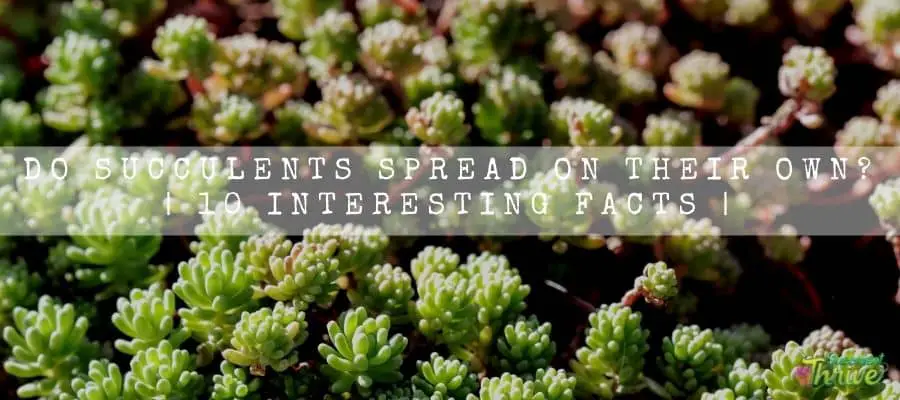
Do succulents spread on their own?
The succulent spread, growth and sizes could be different based on the weather conditions, soil type, watering requirements and on fertilizers.
Slow growing succulents would remain in pots or in containers whilst the fast growers such as Sedum could expand their spread up to one inch within a period of one month.
succulents could be great ground covers. Most of the groundcovers are fascinating in their looks. succulents could withstand the drought conditions and we could easily maintain them too.
Some supplemental watering would be very useful for ground cover succulents.
Watering amount and the watering frequency could be different depending on the variety of the ground cover succulent. If we could fulfill their water requirement they would be happy.
In addition to watering, temperature and the soil mix could also factor for the spread of the ground covers.
A small piece of advice when it comes to watering the ground cover succulents, is to wait until the soil gets dry enough before you water it
When you water, ensure that you do it through. Further they could grow well in spring and you should be aggressive in watering them during their growing period.
You could reduce watering them in winter.
Do succulents multiply on their own
You could see many succulent types multiply on their own through division.
On the other hand, there could be certain cacti which contain small plants and they will form on the ribs or on the tips of the leaves of the plant. When the plantlets mature and when we can deal with them easily, we can remove them.
Along with the division of other succulents, little plants could emerge while surrounding the mother plants when they mature.
Over time, there will be more small plants formed and they will tend to surround the larger plants. As this happens, the container will fill with them. Now you can remove the plant and the soil from the pot.
You may take out the small plants also but in a gentle way. You should Water them appropriately prior to its removal from the pot. This will help more soil to adhere to the roots.
It is essential to have roots in the small container for their well growth. Consider that they don’t have roots, then it will take a longer time to form roots also. Further you should pot the little ones in the containers.
You should take necessary actions if the little plants do not have roots or even if they have got damages.
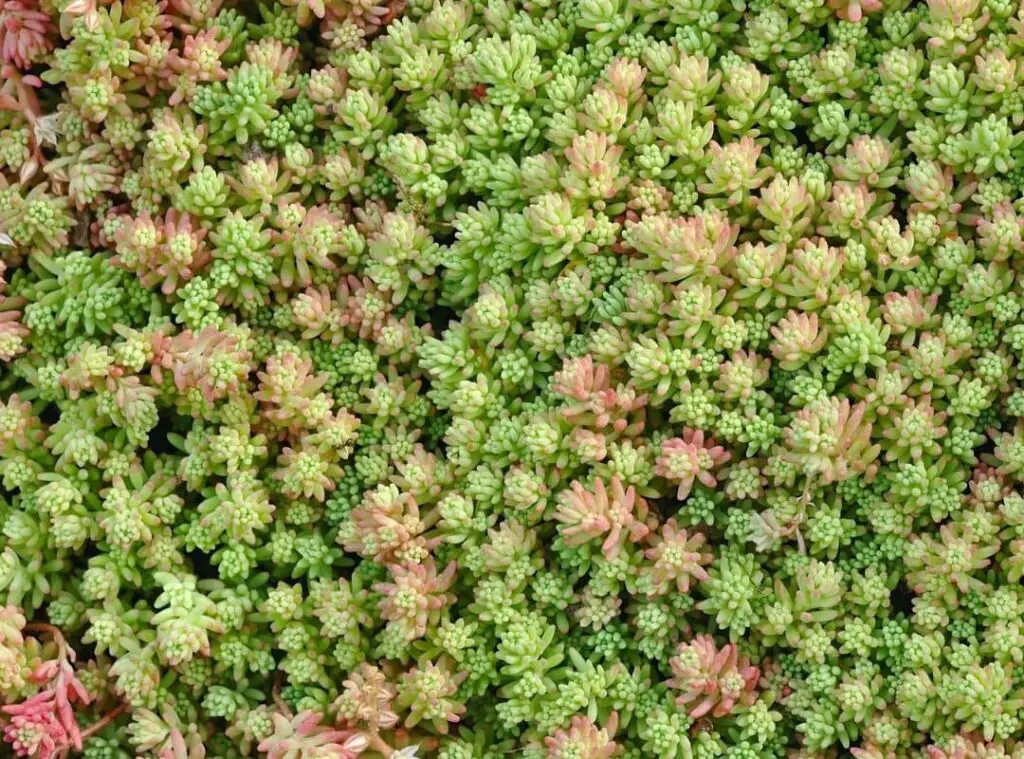
What has it meant by succulent ground cover
If it is possible for you to provide a high quality, well-draining soil, perfect level of temperature, adequate amount of sunlight , sufficient watering for succulents , you will get a fascinating and attractive succulents spread known as ground cover
There are certain succulents which could make great groundcovers by themselves or even with combining.
That is purely because they can survive in numerous growing conditions. Along with that they are hardy plants, and they could withstand any condition.
It is up to you to either grow just one species to beautify your garden or yard or even a mix of plants to make them look more attractive. That will be an easy-care lawn alternative too.
If it is possible for you to provide a high quality, well-draining soil, perfect level of temperature, adequate amount of sunlight , sufficient watering for succulents , you will get a fascinating and attractive ground cover. They require relatively less labor.
Finally, succulents make attractive ground covers in the desert conditions also.
We could use Vines, grasses, blooming plants , shrubs which grow slowly as ground covers.we should give them different care treatments for different ground covers.
They can create a carpet of foliage whilst it could tighten up the weeds as an added advantage. They can survive in shady spots. They would be beneficial in controlling in erosion too
How to select spreading succulent for your garden?
The most crucial factor which should come to your mind when choosing succulents for the outdoor grown covers would be undoubtedly the growing conditions.
Different people would want different types of succulents. Some would want to have hardy succulent types while on the other hand there could be certain succulent fan lovers who would want to have drought tolerant succulents.
No matter where you establish your succulent, bear in mind that it is mandatory to provide them with well-draining soil. Unless the plant will start struggling with fungal or rot issues.
It is not necessary for the soil to be rich as many of the succulents would wish to have lean soil. further ensure that you can arrange something to protect the plants from intense heat in case if they get any.
You should be more aggressive in watering especially during summer.
If you are someone who lives where you get only little rainfall, you could water them like once a week. If you consider a plant in a pot or in a container you could increase that up to three times weekly.
Ensure that you minimize the irrigation during fall and during winter. It helps the succulents to bear the colder temperatures.
There could be repercussions because of freezes if you let the soil to be in soggy and soft condition.
If you ever wonder as to what type of succulent would suit you best for the location you live, you could purchase them from local suppliers, nurseries, succulent plant groups and even from botanical gardens.
Then, you could ascertain whether the succulent you are going to own would survive or not.
List of spreading succulents
Sedums
Sedums’ common name is stonecrops. You can grow them easily. They are slow growers. They are evergreen plants and they would be perfect for groundcovers . A little care treatment would be essential for them.
They come up with various shapes and in colors. Refrain in over watering sedum, as chances are that they could get damages due to that.
They can survive in bright, sunny locations. Further they would also do well in partial sunlight areas too. They will easily spread. Their Propagation method is also easy.
They can tolerate heat, lots of sunlight. Furthermore they are frost hardy too. Those chareterics make them ideal outdoor plants.
Sedum Spurium ,Sedum Reflexum, Sedum Japonicum are example for this.
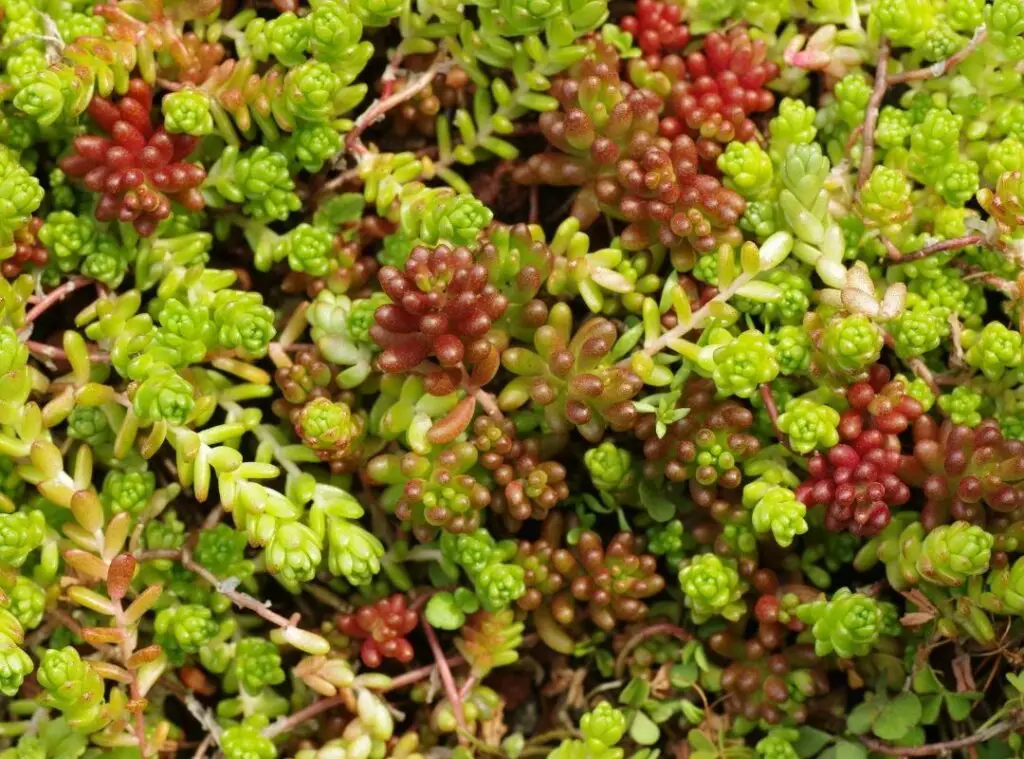
Sempervivums
Sempervivums/ common name is ‘Hens and Chicks’. You could find Hens and Chicks in different colours and in different sizes.
They will survive in full bright sunlight . Sempervivums can multiply by forming many small babies around the mother plant. Hence why people call it ‘hens and chicks’.
There are certain sempervivums which could grow at a larger scale, whilst on the other hand there could be some of them which would remain tiny.
They withstand different growing conditions and that is why you could use them as great ground covers. They would appreciate well draining soil. You should avoid Over watering them.
Some Sempervivums great groundcovers are: Sempervivum Arachnoideum Sempervivum ‘Moss Rose’ Sempervivum Calcareum
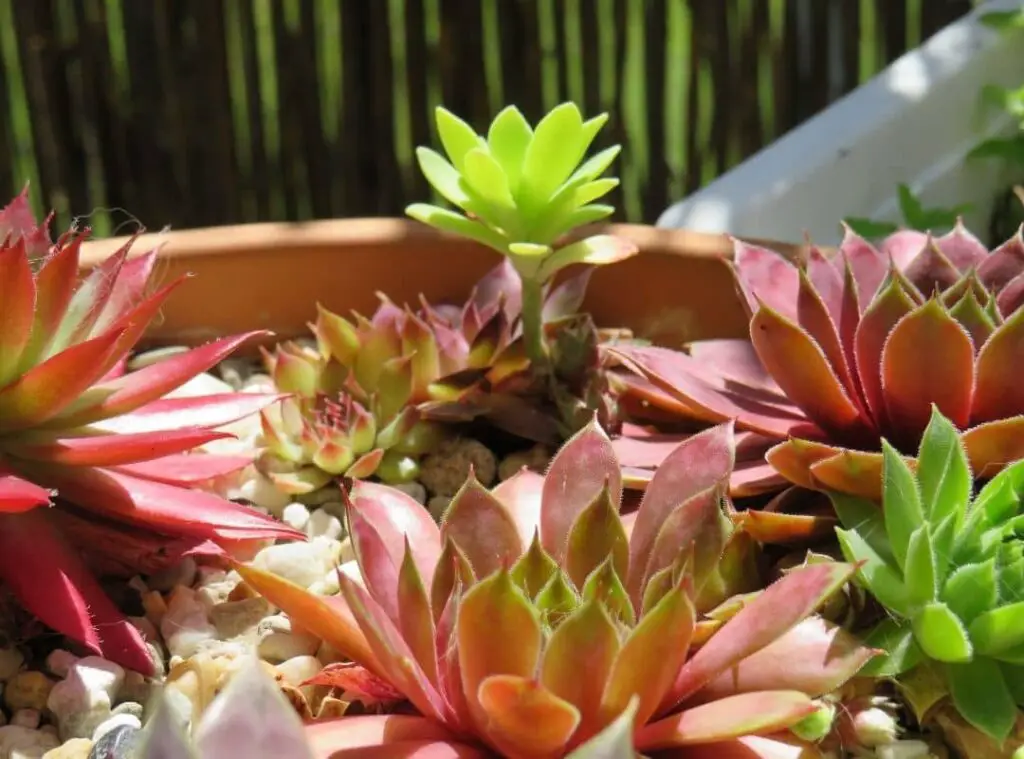
Agaves
Agave is a large genus of succulent’s plants. They form in rosettes shapes and carry upward pointed leaves. There could be different species of the Agaves.
Out of this there could be dwarf varieties whilst there could be some which could grow up to 10 feet in height when it matures.
We could easily maintain them too and will thrive in numerous environmental conditions. They could withstand the full intense sunlight to partial sunlight.
There could be some exceptional Agaves which are cold hardy than other Agaves.
‘Blue Glow’ Victoriae-Reginae ‘Queen Victoria Agave’ would be perfect matches for ground covers.
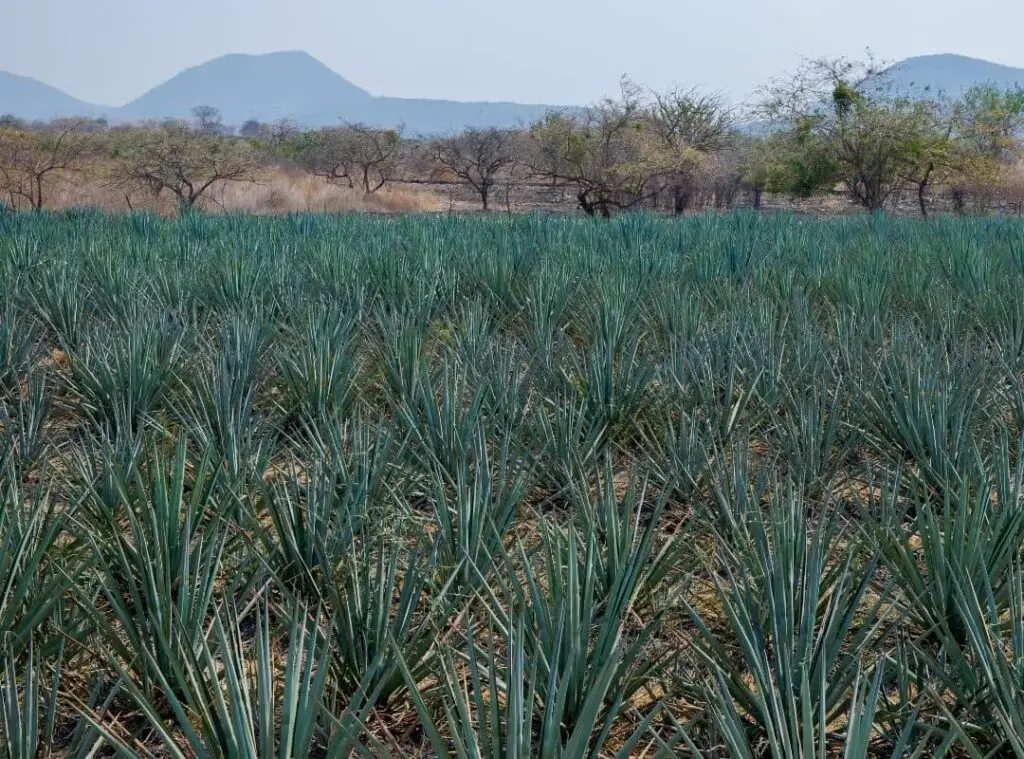
Aloe
Aloe is a famous and larger genus of succulents. They comprise of tiny dwarf varieties as well as species which could grow like trees. They will rise to 30 feet in height.
They would carry thick, fleshy leaves. You could spot their leaves in green to bluish-grey-green colors. The larger species of the Aloes would thrive in full sunlight.
They could be quite handy in using for landscape plants outdoors or as plants for larger containers.
Certain species will bear mild frost with an insignificant damage to the plant. Aloes also need less care treatment from us.
You could use Aloe Cameronii ,Aloe Nobilis as ground covers
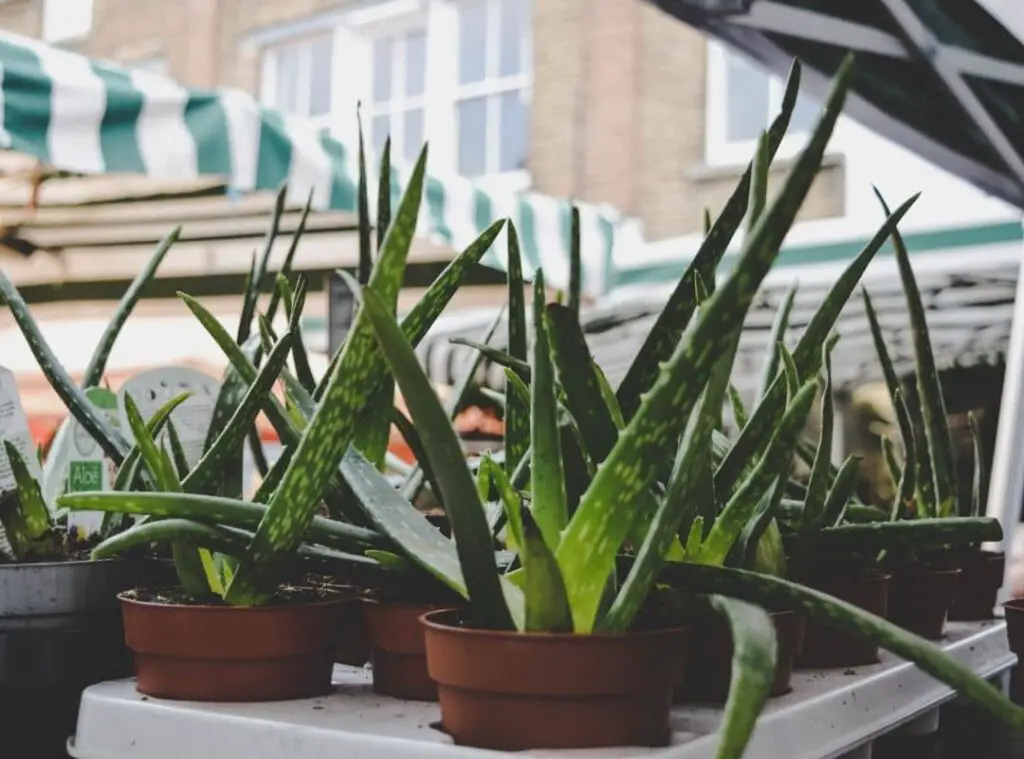
Crassula
Crassula is also a larger genus of succulents. They form in so many different colors, shapes as well as in different sizes too. Many of the crassula types have adjusted to grow well in tough environmental conditions.
Apart from that they could thrive in different growing conditions as well. Hence why they could be handy in using ground covers.
The Crassula types which make the best ground covers are Crassula Muscosa ‘Watch Chain’ or ‘Lizard’s Tail’ Crassula Capitella ‘Campfire Crassula’ or ‘Red Pagoda Crassula Multicava ‘Fairy Crassula’
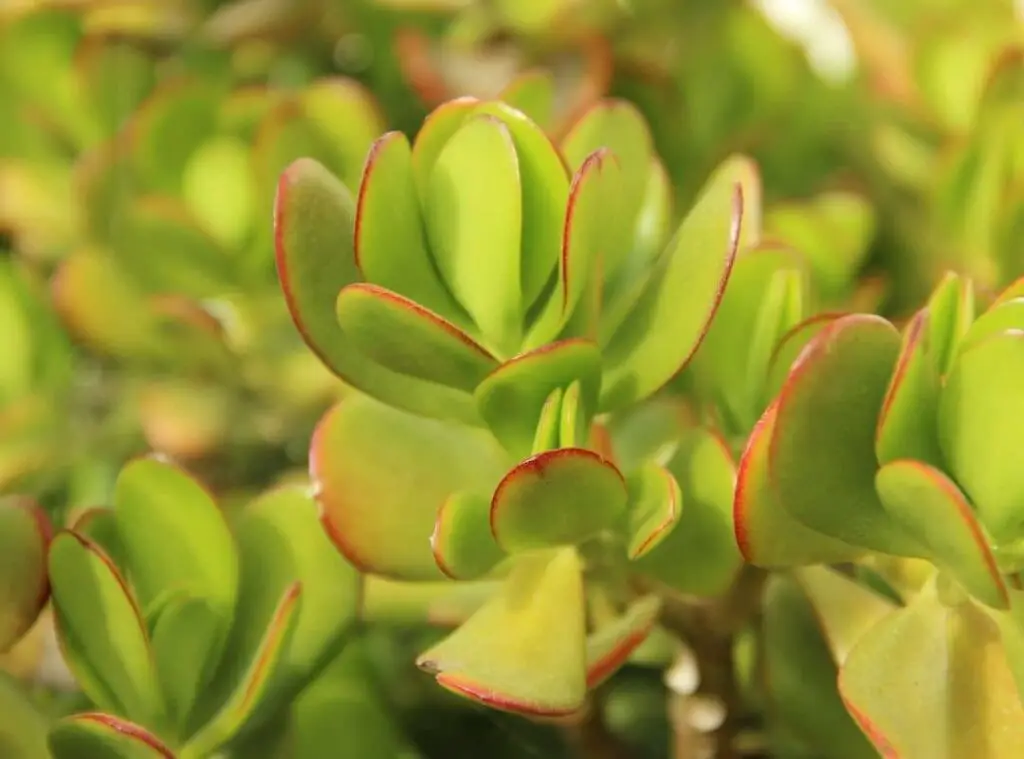
Euphorbia
Euohrbia could bloom elegantly and it has over 2000 members. This is a spurge. They are tough and hardy plants and they can adapt to any kind of growing environmental condition.
They have a substance called latex that has the strongest amount of poisoning . latex is the white milky sap of the plant.
The entire plant’s parts would be quite irritating for the pets. It could be uncomfortable for the skin and could be even harmful when you consume it. Hence be vigilant when handling these plants.
You could use Euphorbia Myrsinities Euphorbia Milii as ground covers.
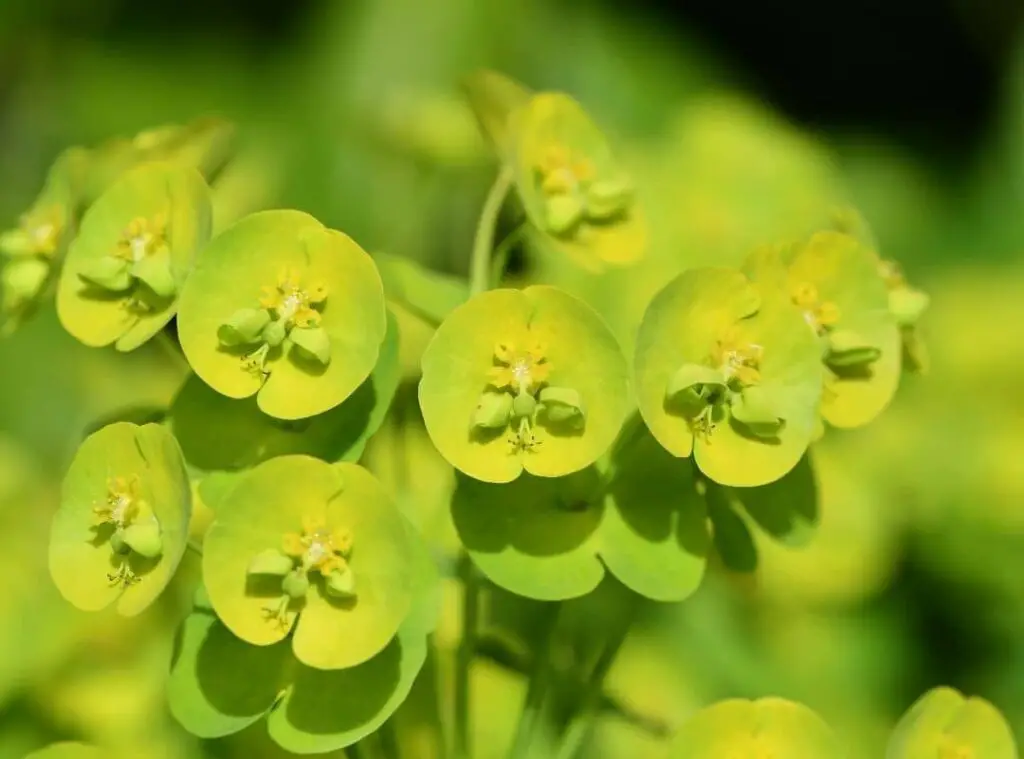
Senecio
This is an endemic plant in South Africa. They are slow growing and spread out once they grow. Their leaves will be silvery blue-green in color. Further they will be long and pointed up too.
They are handy in using ground covers and usually prefer to grow in zones 9-11. We need to secure them from intense winter conditions. They would love to have bright sunlight and will withstand the full sunlight.
We could easel maintain them and hence why this is perfect for a ground cover. They could bear hard growing conditions.
They only need a minimum of care but will be graceful once we grow them in our gardens.
Senecio serpens.is a great example for ground cover senecio.
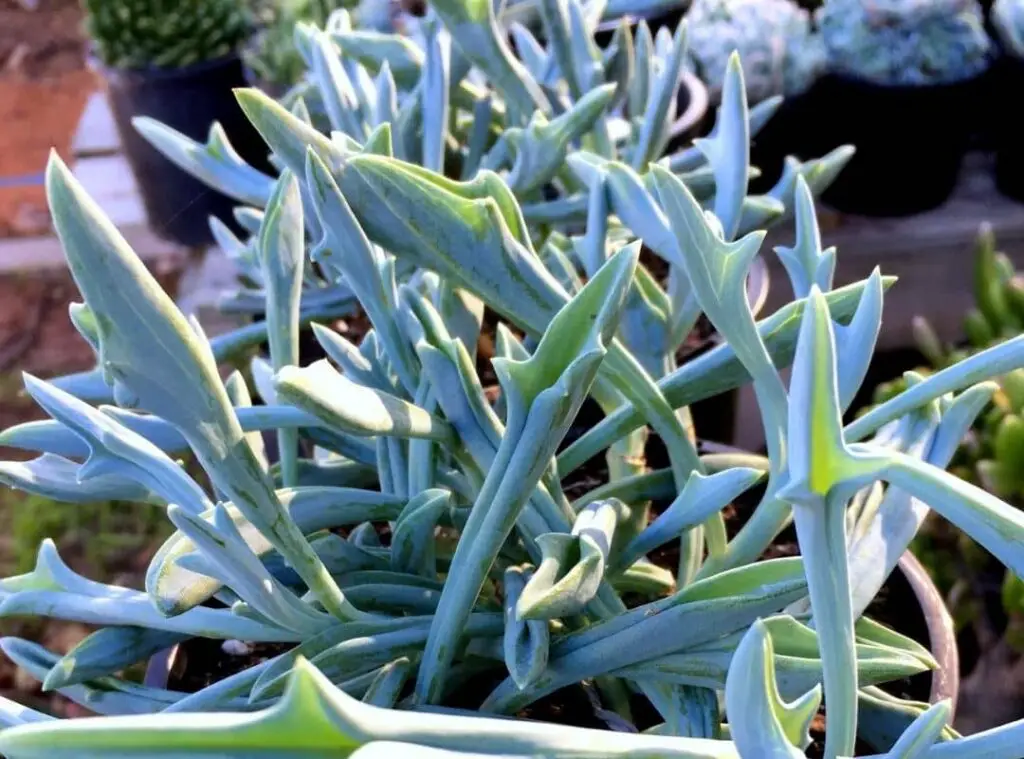
Benefits of spreading succulents.
Certain succulents have so many benefits including for medicinal purposes and so on. Succulents like Aloe vera and Agave plants are great examples for this.
If we further elaborate on Aloe Vera, it could be in various formations and you could ingest them as supplements as well.
You could use them as health drinks as they contain many health claims. Moreover, people use it topically on skin to get so many requirements fulfilled.
If we take Agave as an example, many people tend to use it as a natural sweetener. Moreover,you could use it as an alternative for sugar also.
This contains natural antiseptic properties and you could utilize it to treat the wounds topically.
When it comes to cacti varieties, some traditional people in some cultures have used it as a part of the meal.
Apart from the benefits aforesaid, following are some further benefits of spreading succulents.
It will be beneficial for better breathing. That would be one privilege of having a succulent. When you have plants where you live, they purify the air and help for better air circulation.
They reduce the Carbon dioxide level and simultaneously increase the oxygen level. It will also be effective in increasing humidity and cleanses the airborne dust and the pollutant in the air. Above all, it helps to continue a low air temperature too.
Further it help you focus too.
If you grow succulents, it will assist you in focusing . Best example for this would be the employees at an office who tend to keep greenery at their desk are more focused and productive.
Besides that, they stay healthy and do not fall sick a lot too. As the experts have shown, being with nature or having a greenery indoors assist us in increasing focus as well as concentration.
Having a plant makes you pleased and satisfied.
If you own a succulent which you could care about every day, it will make you feel good.
Consider that you have grown a small plant and when it matures to its full size, how pleasing It is for you to see that. It will eradicate loneliness and loneliness and will make you feel good.
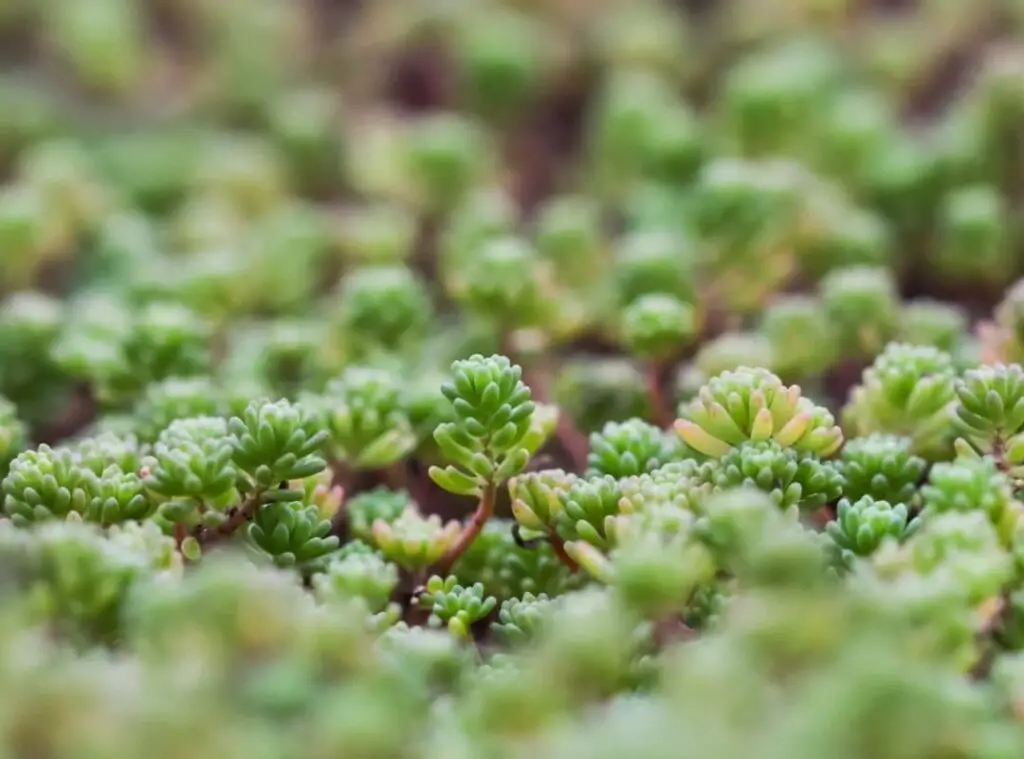
Useful tips to plant spreading succulent.
Firstly , check whether it has a well draining soil. You could check this whilst using a trench to dig and fill it with water.
Leave it like that for half an hour and if it has not drained, it indicates that it is not the right type of soil for your succulent.
You could be a little smart here by adding some sand or gravel to the top surface of the soil for a few inches.
Further avoid using organic mulch for them. Unless it will help to create fungal and pest menace. Consequently, it could store excess moisture as well.
Alternatively, you may use inorganic mulches such as pea gravel or stones. Once the plant is in its establishing process, you may water them infrequently.
When it comes to catering, ensure that the soil is completely dry before you water it once more.
Refrain in growing invasive plants. Further you can use shade tolerant ground cover especially under widely spread trees as their grass won’t grow.
Golden Japanese forest grass, lilyturf are few examples of that. You could grow them depending on your environmental conditions too.
Avoid selecting tender plants for traffic areas, because not all the succulents are resilient specially when you grow them as ground covers.
You should select deep rooted plants especially for slopes which could get affected with erosion.
Chances are that the succulents which have a shallow root system could be wiped away due to the heavy rainfall and strong winds.
Some examples for that are cacti and most ferns. Hence why, you should plant succulents with deep root systems.
It would be better if you could do the preparation work prior to planting them. Further you could place the perennial beds before growing the ground cover
Read More: 10 Hardy And Beautiful Succulents For The Bathroom
